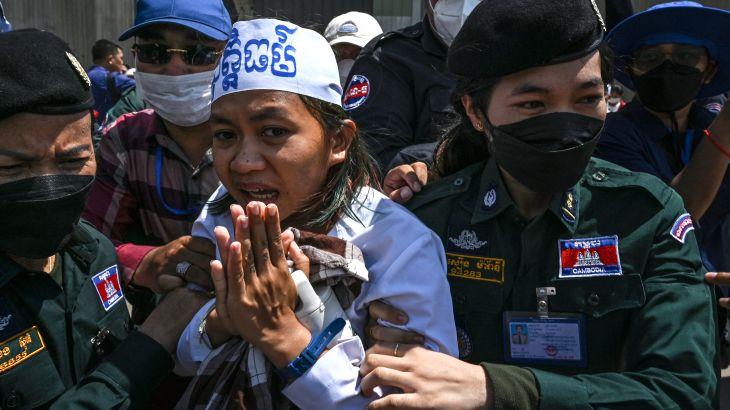Cambodia faces criticism for imprisoning environmental activists as Human Rights Watch denounces the government's actions.
A Cambodian court has found a group of environmental activists guilty of conspiring against the government and defaming the king. The 10 activists, associated with Mother Nature, received sentences ranging from six to eight years in prison. Non-governmental organizations advocating for human rights argue that the trial was a move to silence critiques of governmental actions. The allegations revolve around Mother Nature's activities from 2012 to 2021, highlighting suspected pollution in the Tonle Sap River, which flows into Southeast Asia's largest freshwater lake and serves as a significant fishing location. The organization also highlighted concerns regarding lake filling in Phnom Penh, illegal logging, and natural resource destruction across the nation. Additionally, three activists were accused of insulting the king due to a leaked internal Zoom meeting discussing political cartoons. Subsequent to the verdict, four defendants were apprehended outside the court, with six others sentenced in absentia, including Mother Nature's co-founder Alejandro Gonzales-Davidson, who was expelled from Cambodia nearly ten years ago.
The imprisonment of these activists occurs amid escalating worries about free speech in Cambodia following Prime Minister Hun Manet's ascendancy to power last year after his father, Hun Sen's prolonged rule. Human Rights Watch criticized the trial as an effort to stifle criticism of government actions. Gonzales-Davidson expressed dismay at the regime's harsh treatment of those advocating for justice. In response, the government refuted claims of political bias in the trial, asserting that it prosecutes individuals based on criminal activities rather than dissenting opinions. The ongoing struggle over preserving versus exploiting Cambodia's natural resources has been a source of contention in the kingdom, leading to threats, arrests, and even killings of environmentalists in the past decade. Three of the convicted activists had previously served time for organizing a peaceful demonstration against a lake's infilling in the capital for real estate development purposes. Between 2001 and 2015, one-third of Cambodia's primary forests - crucial biodiversity hotspots and significant carbon sinks - were depleted, with forest cover loss accelerating at an unparalleled pace globally, as outlined by the World Resources Institute. Much of the cleared land has been allocated to businesses through concessions that experts link to deforestation and displacement within the country.
Source: ALJAZEERA
ALJAZEERA MEDIA NETWORK
